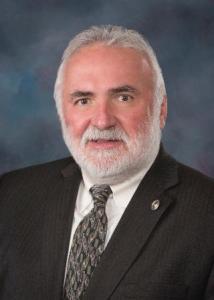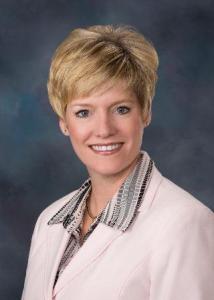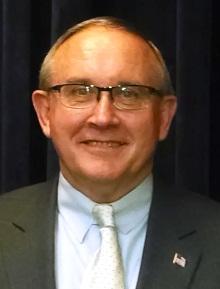Rep. Hy Kloc is working with Republican lawmakers to help build support for a voluntary pre-K pilot proposal he hopes to unveil this year.

Kloc, a Boise Democrat, introduced a bill last year to create a pre-K pilot program, but it stalled in committee.
In hopes of avoiding the same fate, Kloc is working behind the scenes to rewrite his bill and team up with Rep. Christy Perry, R-Nampa, and fellow House Education Committee member Rep. Pat McDonald, R-Boise.
“The odds are good something will happen,” Kloc said. “Will it happen this year? I hope so, I’m still confident.”
His new plan would:
- Create a three-year voluntary pilot pre-K program, with public school and state-certified private preschool providers eligible to participate once they are approved by the State Department of Education.
- Invite parents to be active in pre-K through an orientation, classroom visits, training sessions and teacher home visits – at the parents’ discretion.
- Enter pre-K academic data into the state’s recordkeeping systems so success can be evaluated.
- Call upon state education officials to develop pre-K curriculum in alignment with existing Idaho academic standards.
- Provide home-based technology to reach students who do not live near a pilot school.
- Be funded through a mix of private and public sources, including grants and bonds based on a Utah model where investors “bet” on the program.
- Perhaps cost $1.4 million over three years, according to one model Kloc has looked at. Fifty-five percent of funding required to come from private grants, contracts or donations.
Kloc, who has taught at the junior high, high school and college levels, believes a pre-K program can help the state meet its goal of 60 percent of young adults holding a college degree or certificate by 2020.

“The more I researched it and the more community groups I talked to, it seemed like this was an answer, but it was an answer people were ignoring,” Kloc said. “Then I found out other conservative states implemented preschool years ago – like Oklahoma – and it’s been very successful.
“It just struck a nerve with me and I’m going to see it through to the end.”
Perry told Kloc she would be interested in co-sponsoring the bill.
“In Idaho as a general rule – and I guess government in general – we tend to operate in reactive mode. We wait until there is a problem and try to find things to fix that problem,” Perry said. “I’m working really hard to shift the focus and be proactive instead, so we don’t have a crisis 15 to 20 years down the road. Education is one of those areas where we need to be much more proactive.”
Perry said said she likes the plan for two big reasons.
First, she thinks early childhood learning will better prepare students for school, to advance at grade level and to go on to college and a career without the level of remediation now needed across the state.
Second, she read studies and talked to law enforcement officials who said they forecast how many prison beds will be needed — based in part on third-grade reading level scores.

As the pilot advances, Perry wants to compare scores between Idaho students who participated in pre-K and those that didn’t, to determine if it is worth continuing or expanding.
McDonald supports the idea because a pilot program will allow the state to study results and determine if there is success to warrant a larger program.
If not, the state will have invested modestly in a study that should produce usable data – and won’t waste money rolling out an untested statewide program, he said.
“I guess I’m what you’d call a pragmatic conservative,” McDonald said. “On a preliminary basis, I think it’s wise to look at this and see if there is potential for us doing some good helping some kids.”
One of the most common objections to pre-K in Idaho is that young children are best educated at home and parents know what is best for their children.
But Zach Wesley, the Idaho Parent-Teacher Association’s vice president for legislation, said the PTA backs pre-K.
“We at the PTA, nationally and in the state of Idaho, have long supported pre-K education – even before this latest version (of Kloc’s proposal) we supported that,” Wesley said. “It is essential to getting students to the point they need to be so they are at grade level and can be prepared for college.”
Kloc said no date has been set for a hearing on introducing his bill. But he is motivated to work with other lawmakers, build consensus among up to three draft proposals now circulating the Statehouse and act within the next two weeks.
“We’re waiting to see where everything lies and if we combine bills to bring them to the chairman,” Kloc said. “But Feb. 10 is my birthday, and I’m using that as my guiding star.”
